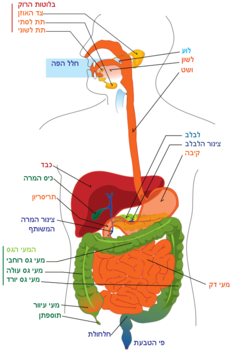Protein losing enteropathy

Editor-In-Chief: Prab R Tumpati, MD
Obesity, Sleep & Internal medicine
Founder, WikiMD Wellnesspedia &
W8MD's medical weight loss NYC, sleep center NYC
Philadelphia medical weight loss and Philadelphia sleep clinics
| Protein-losing enteropathy | |
|---|---|

| |
| Synonyms | N/A |
| Pronounce | N/A |
| Specialty | N/A |
| Symptoms | Edema, diarrhea, weight loss |
| Complications | Malnutrition, hypoproteinemia |
| Onset | Variable |
| Duration | Chronic |
| Types | N/A |
| Causes | Inflammatory bowel disease, congestive heart failure, lymphangiectasia |
| Risks | Autoimmune disorders, infections, congenital heart disease |
| Diagnosis | Stool test, serum albumin levels, endoscopy |
| Differential diagnosis | Nephrotic syndrome, liver cirrhosis, celiac disease |
| Prevention | N/A |
| Treatment | Dietary management, medications, surgery |
| Medication | N/A |
| Prognosis | Variable, depends on underlying cause |
| Frequency | Rare |
| Deaths | N/A |

Protein-losing enteropathy (PLE) is a medical condition characterized by the excessive loss of protein from the digestive system. This condition can result from a variety of diseases that affect the gastrointestinal tract, including inflammatory bowel disease (IBD), congenital heart disease, and infections. PLE can lead to significant complications, including malnutrition, immune dysfunction, and edema due to the loss of albumin, a key protein that helps maintain blood volume and pressure.
Causes[edit]
PLE can be caused by several underlying conditions that affect the integrity or function of the gastrointestinal tract. These include:
- Inflammatory bowel disease: Conditions such as Crohn's disease and ulcerative colitis can cause inflammation and damage to the bowel, leading to protein loss.
- Congenital heart disease: Certain heart conditions can increase pressure in the blood vessels of the abdomen, leading to protein leakage into the intestines.
- Infections: Parasitic, bacterial, or viral infections of the gut can damage the mucosal lining, resulting in protein loss.
- Lymphatic disorders: Diseases affecting the lymphatic system can lead to the accumulation of lymph fluid in the intestines, which contains high levels of protein.
Symptoms[edit]
The symptoms of PLE can vary depending on the underlying cause but commonly include:
- Edema: Swelling due to fluid accumulation, especially in the legs and abdomen.
- Fatigue: Due to malnutrition and the loss of vital proteins.
- Weight loss: As the body loses protein, it can lead to significant weight loss.
- Diarrhea: Frequent and sometimes severe, due to the underlying gastrointestinal condition.
Diagnosis[edit]
Diagnosing PLE involves a combination of clinical evaluation, laboratory tests, and imaging studies. Key diagnostic steps include:
- Blood tests: To check for low levels of protein, especially albumin, and other signs of malnutrition.
- Stool tests: To measure the amount of protein being lost through the digestive system.
- Imaging studies: Such as MRI or CT scans, to identify any structural abnormalities in the gastrointestinal tract.
- Endoscopy: To visually inspect the lining of the gastrointestinal tract for signs of disease.
Treatment[edit]
Treatment of PLE focuses on addressing the underlying cause of the protein loss and managing symptoms. This may include:
- Medications: To reduce inflammation, treat infections, or manage heart conditions.
- Dietary modifications: To increase protein intake and manage symptoms such as diarrhea.
- Surgery: In some cases, to repair or remove damaged sections of the gastrointestinal tract or to correct congenital heart defects.
- Supplemental nutrition: Including high-protein diets or intravenous nutrition in severe cases.
Prognosis[edit]
The prognosis for individuals with PLE varies depending on the underlying cause and the effectiveness of treatment. Early diagnosis and management are crucial for improving outcomes and preventing complications.
Ad. Transform your life with W8MD's Budget GLP-1 injections from $75


W8MD offers a medical weight loss program to lose weight in Philadelphia. Our physician-supervised medical weight loss provides:
- Weight loss injections in NYC (generic and brand names):
- Zepbound / Mounjaro, Wegovy / Ozempic, Saxenda
- Most insurances accepted or discounted self-pay rates. We will obtain insurance prior authorizations if needed.
- Generic GLP1 weight loss injections from $75 for the starting dose.
- Also offer prescription weight loss medications including Phentermine, Qsymia, Diethylpropion, Contrave etc.
NYC weight loss doctor appointmentsNYC weight loss doctor appointments
Start your NYC weight loss journey today at our NYC medical weight loss and Philadelphia medical weight loss clinics.
- Call 718-946-5500 to lose weight in NYC or for medical weight loss in Philadelphia 215-676-2334.
- Tags:NYC medical weight loss, Philadelphia lose weight Zepbound NYC, Budget GLP1 weight loss injections, Wegovy Philadelphia, Wegovy NYC, Philadelphia medical weight loss, Brookly weight loss and Wegovy NYC
|
WikiMD's Wellness Encyclopedia |
| Let Food Be Thy Medicine Medicine Thy Food - Hippocrates |
Medical Disclaimer: WikiMD is not a substitute for professional medical advice. The information on WikiMD is provided as an information resource only, may be incorrect, outdated or misleading, and is not to be used or relied on for any diagnostic or treatment purposes. Please consult your health care provider before making any healthcare decisions or for guidance about a specific medical condition. WikiMD expressly disclaims responsibility, and shall have no liability, for any damages, loss, injury, or liability whatsoever suffered as a result of your reliance on the information contained in this site. By visiting this site you agree to the foregoing terms and conditions, which may from time to time be changed or supplemented by WikiMD. If you do not agree to the foregoing terms and conditions, you should not enter or use this site. See full disclaimer.
Credits:Most images are courtesy of Wikimedia commons, and templates, categories Wikipedia, licensed under CC BY SA or similar.
Translate this page: - East Asian
中文,
日本,
한국어,
South Asian
हिन्दी,
தமிழ்,
తెలుగు,
Urdu,
ಕನ್ನಡ,
Southeast Asian
Indonesian,
Vietnamese,
Thai,
မြန်မာဘာသာ,
বাংলা
European
español,
Deutsch,
français,
Greek,
português do Brasil,
polski,
română,
русский,
Nederlands,
norsk,
svenska,
suomi,
Italian
Middle Eastern & African
عربى,
Turkish,
Persian,
Hebrew,
Afrikaans,
isiZulu,
Kiswahili,
Other
Bulgarian,
Hungarian,
Czech,
Swedish,
മലയാളം,
मराठी,
ਪੰਜਾਬੀ,
ગુજરાતી,
Portuguese,
Ukrainian
